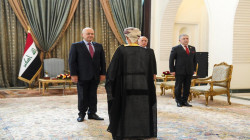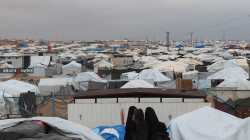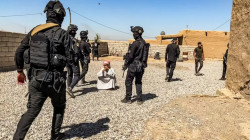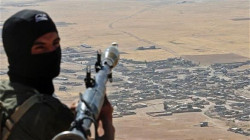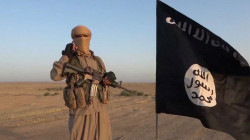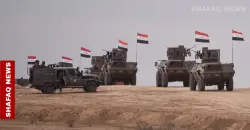Iraq caught in the middle: ISIS, security needs, and foreign troop presence
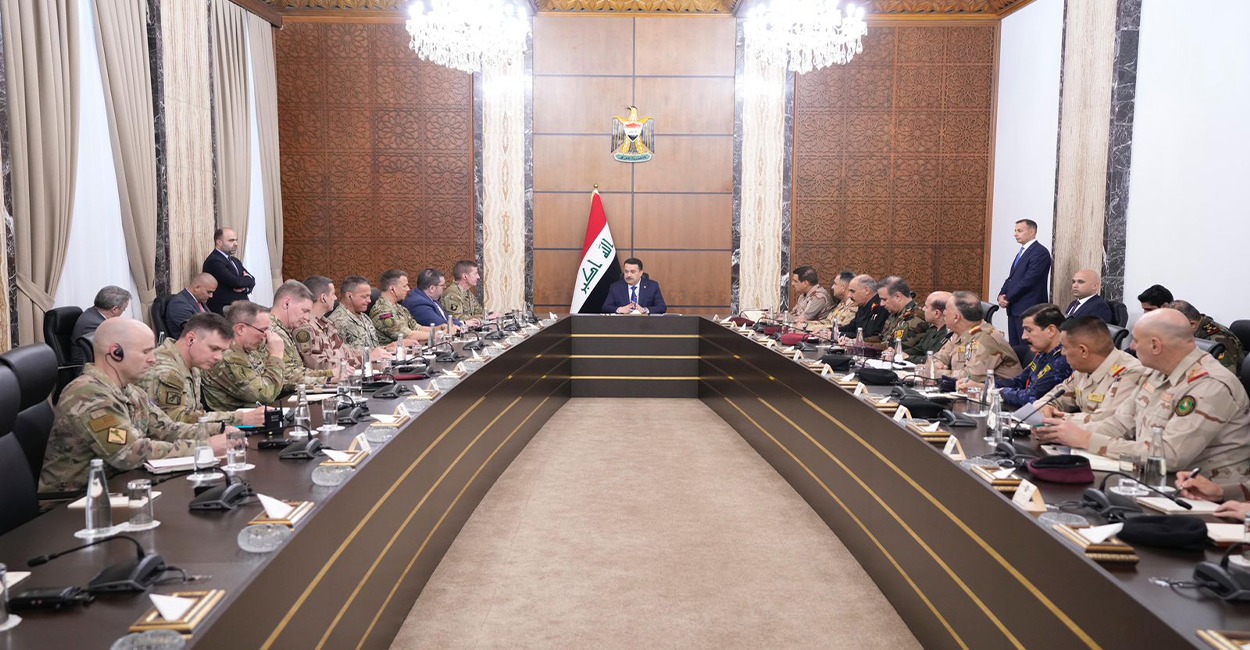
Shafaq News/ As talks between Baghdad and Washington regarding the withdrawal of US troops from Iraq continue, a central question remains: Does Iraq still need the international coalition's presence? This issue takes on new urgency as the US Central Command (CENTCOM) warns of a potential ISIS resurgence, with attacks doubling in the first half of 2024 compared to the previous year.
While the Iraqi government declares ISIS defeated, some analysts suggest the US is using this renewed threat as justification for a continued presence. Others, however, argue that Iraq still relies on the coalition and the US for various reasons, including security, political, and diplomatic support.
Coalition's Role: Shifting Focus
The Global Coalition against Daesh (ISIS), led by the United States, was formed in September 2014. Comprising 87 members, its main goal is to degrade and ensure the enduring defeat of ISIS. The coalition collaborates with the Government of Iraq to stabilize and redevelop areas previously controlled by ISIS, including those damaged by conflict.
Another objective is to support Iraqi forces and the Peshmerga in delivering the military defeat of ISIS in Iraq. The coalition's military mission, known as Combined Joint Task Force – Operation Inherent Resolve, now focuses on advising and assisting, as well as providing specialist operational capabilities such as surveillance and intelligence support. The coalition also aims to counter ISIS's efforts to exploit the economic assets and resources of the Iraqi people.
"The Government of Iraq is a leading member of the Global Coalition, and today the Iraqi Security Forces and Peshmerga are actively working to ensure Daesh cells can find no safe havens from which to resurge," says the coalition on its official website.
Calls To Expel
Since ISIS lost its hold on Iraq in 2017, there have been calls for the withdrawal of coalition forces, especially following a US airstrike in January 2020 that killed Iranian top commander Gen. Qassem Soleimani and Iraqi PMF leader Abu Mahdi al-Muhandis outside Baghdad airport. Iraqi officials at the time complained that the US attacks violated their sovereignty.
In the same month as the assassination operation, Iraq's parliament passed a non-binding resolution calling on the government to expel foreign troops from the country. In an extraordinary parliamentary session, parliament urged the government to end all foreign troop presence in Iraq and cancel its request for assistance from the US-led Coalition.
While Iraq's government declares that ISIS is defeated and the coalition's job is over, it remains interested in exploring bilateral relations with coalition members, including military cooperation in training and equipment. However, it also contends that the coalition's presence has become a magnet for instability, with near-daily attacks by Iran-backed Islamic Resistance in Iraq on bases housing coalition forces and escalating US retaliatory strikes.
US and Iraqi officials acknowledge that the process of reducing foreign troop presence could take many months, if not longer, with no imminent withdrawal of US forces.
In January 2024, the United States and Iraq held initial talks on the future of US and other foreign troops in the country, with Baghdad expecting discussions to lead to a timeline for reducing their presence. The commission formed for these talks investigates the threat posed by ISIS, operational and environmental requirements, and the growing capabilities of Iraqi security forces.
Despite the US stating that the decision to discuss withdrawal from Iraq was made prior to October 7, ISIS in Iraq claimed credit for the decision, stating that it "proves that the Americans only understand the language of force" and promised to continue its attacks.
Currently, there are about 2,500 US troops still deployed in Iraq as part of the coalition.
While many Iraqis celebrated parliament's resolution, others were displeased with the move.
Warns of Renewed Threat
Earlier this week, the US Central Command (CENTCOM) said that ISIS attacks in Iraq and Syria are on track to double in 2024 compared to the previous year, indicating that the hardline militant group is trying to rebuild its capabilities.
ISIS claimed responsibility for 153 attacks in both countries during the first half of 2024, according to CENTCOM. This compares to 121 attacks reported throughout 2023.
"The increase in attacks indicates ISIS is attempting to reconstitute following several years of decreased capability," CENTCOM said in a statement.
"To continue the effort to defeat ISIS and prevent its ability to conduct external attacks, United States Central Command, along with our Defeat ISIS partners, Iraqi Security Forces and the Syrian Democratic Forces, conducted 196 Defeat ISIS Missions, resulting in 44 ISIS operatives killed and 166 detained in the first half of 2024. In Iraq, 137 partnered operations resulted in 30 ISIS operatives killed and 74 ISIS operatives detained. In Syria, 59 operations conducted alongside the SDF and other partners resulted in 14 ISIS operatives killed and 92 ISIS operatives detained." CENTCOM said.
American officials maintain that ISIS remains a threat in Iraq, albeit less so than in years past. In its report on ISIS for the fourth quarter of 2023, the US Defense Department's Office of Inspector General described ISIS as "largely contained."
"ISIS is still a threat here, much, much diminished, but nevertheless, our work is essentially not done, and we want to ensure that Iraqi forces can continue the enduring defeat of ISIS," US Ambassador to Iraq Alina Romanowski told Reuters in March.
Gen. Michael Kurilla, who heads US Central Command, told Congress the same month that US intelligence estimates there to be around 1,000 ISIS fighters at large in Iraq.
Some suggest that the American statement regarding ISIS's renewed threat is used as an "excuse" for prolonging their presence in Iraq.
Need or Justification?
The presence of the International Coalition forces in Iraq, according to Talib Al-Yasari, a member of the Parliamentary Security and Defense Committee, depends on "the need of the Ministry of Defense, the Ministry of Interior, and other concerned agencies for American forces. However, Iraqi security forces are fully prepared and ready."
Speaking to Shafaq News Agency, Al-Yasari stated, "The Security and Defense Committee has posed a question to the Iraqi Minister of Defense, Thabit Al-Abbasi, regarding this matter, and he confirmed that there is a need for the International Coalition as advisors for equipment and armament. Currently, we are operating based on need, and this issue is being studied from all angles. Efforts have been ongoing to complete the preparations since 2023 and continue into the current year, 2024."
Security expert Haitham Al-Khazali pointed out, "The Iraqi military and technical side stated in negotiations between the Iraqi and American governments that there is no need for US forces. However, the US argues that its presence in Iraq is linked to its forces in Syria and their need for logistical support."
Al-Khazali, speaking to Shafaq News Agency, suggested that "ISIS's reactivation serves as a justification for the continued presence of foreign forces in Iraq, indicating a clear symbiotic relationship," as he put it.
However, strategic expert Dr. Ahmed Al-Sharifi expressed concerns, stating, "There are many factors on the ground that still raise concerns, including the fragility of the borders. Evidence of this is the extensive Turkish incursions with logistical support lines (land and air), meaning there are border gaps."
Al-Sharifi added, in his interview with Shafaq News, "In addition to political crises and the lack of a unified stance, the parliament plays a direct role in supervising, monitoring, and following up on state institutions, primarily the security and military institutions, has been hindered. The absence of oversight and monitoring in one way or another places them outside the framework of supreme supervision (the Constitution). Therefore, many gaps have led, in one way or another, to the growth of terrorist operations and the re-emergence of ISIS."
He continued, "For some time, there has been talk about a political demand for the withdrawal of foreign forces, specifically the International Coalition and the United States, in the absence of a unified national stance. There is no national consensus demanding the exit of foreign forces. Even those who adopt this option are subject to regional pressures," considering that the demand for the departure of the Coalition and the United States is "an Iranian demand."
"Border Breach" Conflict
According to Al-Sharifi, the complex crises and the field situation in Iraq necessitate the continued presence of the Coalition and US forces due to the regional conflict that may involve the "border breach" card.
Al-Sharifi explained the "border breach" concept, stating, "When ISIS entered Iraq, the talk was about breaching borders on the level of terrorist groups. However, after the victory over ISIS and the closure of some border gaps, we witnessed border breaches through infiltration and drug smuggling."
He added, "There is also an economic border breach involving dollar smuggling. The rising and fluctuating dollar price is due to economic border breaches, which deplete financial resources just as terrorism drained human resources. Although terrorist operations have decreased, they have not ended, indicating that the challenge of terrorism still exists. Along with the border breaches, the national interest demands the presence of US forces until national capabilities are fully developed."
Regarding the importance of the international coalition's presence, Al-Sharifi provided an example, saying, "Today, a roaming ISIS group was targeted in the Hemrin Mountains. This group was tracked by the technical support of the international coalition, particularly the United States, where they were monitored electronically, followed by an airstrike by Iraqi F-16 jets."
He pointed out, "Without electronic surveillance of these groups, they could have infiltrated and reached Diyala or even the Baghdad belt, potentially launching attacks on security and military sectors. Therefore, from an evaluative standpoint, Iraq still needs the international Coalition and the United States, in addition to being tied to a security alliance ensuring the requirements for managing regional conflicts."
US Cooperation Offers Clout
Strategic expert Al-Sharifi elaborated on the broader implications of US cooperation, stating, "When discussing the Turkish incursion and Iraq being an ally of the United States, Iraq can approach the United Nations Security Council and potentially secure a favorable decision within hours. However, suppose Iraq has a hostile relationship with the US and expels the international Coalition and American forces. In that case, its voice will not be heard at the UN and the Security Council."
Al-Sharifi emphasized that "cooperation with the US is not limited to military matters but extends to political and diplomatic dimensions, leveraging international relations, especially with major powers, to create balance. This includes considering Russia's role in Syria and the US's role in Iraq. The political decision-makers in Iraq, if wise, can secure benefits from both Russia and the US to support sustainable development and build national capacities, including in armament."
He concluded, "Iraq still needs the international coalition and the United States for security and military reasons, as well as political and diplomatic dimensions."
